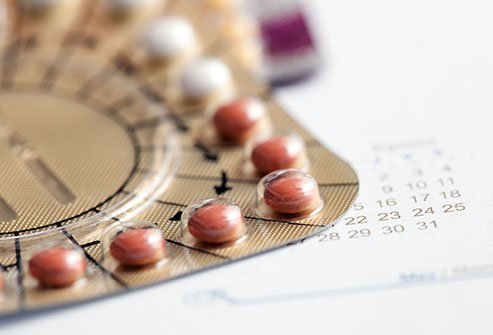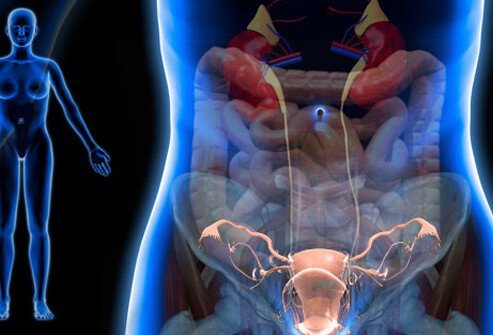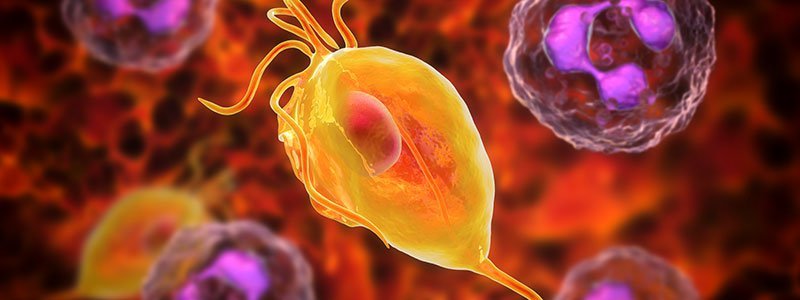What are hormonal imbalances?

The main causes of hormonal imbalances are issues with the thyroid, stress, and eating disorders. Some symptoms include irregular periods, low sex-drive, unexplained weight gain, and mood swings.
Your hormones, which your endocrine system makes, are your body’s messengers. They travel throughout your body, helping control the functions of your major processes and maintain balance within your body. They help manage energy levels, metabolism, reproduction, and more.
If your endocrine system makes too much or too little of a hormone, you develop a hormonal imbalance. Even small imbalances can create problems, such as health issues, early onset menopause, or ovarian cancer. There are many signs and symptoms of hormonal imbalances in women, as well as many different causes. Diagnosing the imbalance and finding the cause can lead to a treatment that restores proper balance and health.

7 common signs and symptoms of hormonal imbalances in women
There are many signs and symptoms of hormonal imbalances in women. They depend on which glands in your body are affected and which hormones are imbalanced. Symptoms include:
Irregular periods
A hormone imbalance can lead to polycystic ovary syndrome (PCOS), a condition in which the body makes higher levels of male hormones. The imbalance leads to skipped periods and can contribute to health issues such as heart disease and diabetes. Imbalances may also cause heavier than normal periods.
Low sex drive
A drop in your estrogen levels can cause a loss of desire for sexual intercourse. The imbalance can also cause vaginal dryness, which may make sex painful or uncomfortable.
Unexplained weight gain
Low levels of thyroid hormones, high levels of cortisol, PCOS, and other hormonal imbalances can cause unexplained weight gain.
Infertility
Hormone imbalances can affect your menstrual cycle, which can make it harder to get pregnant.
Insomnia
Progesterone is known as the “relaxing hormone.” An imbalance of this hormone can lead to insomnia, making it more difficult for you to sleep. Too much progesterone may also lead to chronic fatigue.
Bloating
Cells in the lining of your digestive tract have receptors for estrogen and progesterone. Changes in the levels of these hormones may affect your digestion, leading to bloating and other stomach issues.
Mood swings
Mood swings may occur as the result of normal hormonal changes that occur during the menstrual cycle or menopause. Other types of hormonal imbalances, such as thyroid hormone imbalances, may also lead to mood changes.

SLIDESHOW
Pelvic Pain: What’s Causing Your Pelvic Pain? See Slideshow
3 main causes of hormonal imbalances in women
Some causes of hormonal imbalances in women are natural. Your hormones fluctuate during your menstrual cycle, which can lead to symptoms such as bloating or insomnia. Pregnancy and breastfeeding also affect your hormones. Menopause leads to hormonal changes as well.
Some causes of hormonal imbalances, however, occur for other reasons, such as:
Issues with your thyroid
An overactive or underactive thyroid causes imbalances in the levels of thyroid hormone in your body. These issues may occur as a result of an autoimmune condition, medication, tumors, and more.
Stress
Stress causes your body to produce cortisol. Too much cortisol can lead to Cushing syndrome. Long-term stress exposes your body to high levels of cortisol for long periods and can affect the levels of other hormones in your body.
Eating disorders
Eating disorders, such as anorexia nervosa, can affect your hormone levels, leading to too little estrogen, low bone density, and other problems.
Birth control
Some types of birth control have hormones in them, which then affect the hormones in your body. They can cause issues such as a lack of periods, irregular periods, heavy bleeding, weight gain, digestive problems, and more. Coming off of hormonal birth control may also temporarily affect your natural hormone levels as they rebalance themselves.
Latest Women’s Health News
Daily Health News
Trending on MedicineNet
Diagnosing hormonal imbalances in women
If you suspect a hormonal imbalance, your doctor can diagnose the issue and help you to get the treatment you need.
Diagnosing a hormonal imbalance often begins with an overview of your symptoms and a physical exam. Testing may include:
Treatments for hormonal imbalances in women
Treatment for hormonal imbalances depends on the cause and may include:
How do I get rid of hormonal belly fat?
Unexplained weight gain can be upsetting, especially when it’s around your waistline. In some cases, it can even indicate that something more serious is going on, such as a hormonal imbalance.
Hormones play an important role in controlling your metabolism, appetite, satiety, and energy, all of which are regulated by finely coordinated mechanisms in your brain.
Getting rid of hormonal belly fat involves treating the underlying cause along with other lifestyle modifications, such as diet changes, regular exercise, and stress management.
What hormonal imbalances can cause belly fat?
- Thyroid: The thyroid gland secretes hormones that control metabolism, a process by which the body consumes energy. When your thyroid doesn’t produce enough thyroid hormones (hypothyroidism), most body processes slow down, which leads to weight gain, especially around the abdomen. According to the American Thyroid Association, weight gain due to hypothyroidism may be caused by a buildup of salt and water as opposed to a buildup of fat.
- Cortisol: Cortisol is released in response to stressful situations. When you are agitated, your body goes into flight-or-fight or survival mode, triggered by the secretion of cortisol by the adrenal gland. Increased cortisol can lead to the accumulation of fat around the abdomen.
- Leptin: Leptin helps you feel full after a meal. However, when leptin levels increase and lead to leptin resistance, this can cause increased food intake and fat accumulation in the abdomen.
- Estrogen: Low testosterone levels may reduce libido and increase abdominal fat in both men and women.
- Testosterone: Low testosterone levels in males decrease growth and increase fat accumulation in the body. Increased testosterone levels in females increase insulin resistance, which leads to the accumulation of abdominal fat.

QUESTION
What is pelvic inflammatory disease (PID)? See Answer
4 signs of hormonal belly fat
- Not feeling satiated: Even after meals, you do not feel full and have the urge to eat more. This is because stress hormones indirectly impact your metabolism. Estrogen and testosterone imbalances can also affect leptin levels, which can lead to an increase in abdominal fat.
- Weight gain only in the abdomen: Whenever there is a drop in estrogen levels, there is a high chance of weight gain around the abdomen. This is mostly seen in women going through menopause and those who exercise excessively or have pituitary problems.
- Sugar cravings: With the increase in insulin resistance, your cells may not be able to use sugar for energy. Increased insulin resistance reflexively increases leptin levels. Leptin makes the cells more insulin resistant, and at a particular point, both leptin and insulin cannot work on the cells. This increases sugar cravings, and with increased sugar intake, excess fat is deposited in the abdomen.
- Hair loss: Hair loss along with increased abdominal fat indicates an underactive thyroid gland, which reduces the production of thyroid hormones. With decreased thyroid hormones, the metabolic rate reduces contributing to weight gain, fatigue, constipation, hair loss, and decreased libido.
How to treat hormonal belly fat
Correcting hormonal imbalances
If abdominal fat is caused by hormonal changes, consult a doctor about how to correct imbalances. They may prescribe medications and suggest lifestyle modifications based on your condition.
Reducing caloric intake
Avoiding sugars and alcohol goes a long way, and can help curb the urge to indulge in unhealthy foods. This especially helps in cases of polycystic ovarian syndrome or disease-induced weight gain. Increasing exercise
Regular exercise can help burn excess fat around the abdomen, reduce the risk of diseases (such as cardiovascular diseases), improve stamina, promote bone health, and promote sleep.
Subscribe to MedicineNet’s Women’s Health Newsletter
By clicking “Submit,” I agree to the MedicineNet Terms and Conditions and Privacy Policy. I also agree to receive emails from MedicineNet and I understand that I may opt out of MedicineNet subscriptions at any time.
Medically Reviewed on 4/13/2022
References
Gender Medicine. Official Journal of the Partnership for Gender-Specific Medicine at Columbia University: “Do Fluctuations in Ovarian Hormones Affect Gastrointestinal Symptoms in Women with Irritable Bowel Syndrome?”
Hormone Health Network: “Anorexia.”
Johns Hopkins Medicine: “Hormones and the Endocrine System.”
Mayo Clinic: “Chronic Stress Puts Your Health at Risk.”
Mayo Clinic: “Menorrhagia (Heavy Menstrual Bleeding).”
Mayo Clinic: “Low sex drive in women.”
National Health Service: “9 medical reasons for putting on weight.”
Penn Medicine: “Irregular Periods: Why Is My Period Late?”
Women’s Brain Health Initiative: “The Effects of Hormones on Brain Health.”
Yale Medicine: “Women, Are Your Hormones Keeping You Up at Night?”
Image Source: andriano_cz / Getty Images
Harvard Health Publishing: “Abdominal Fat and What to Do About It.”
Johns Hopkins Medicine: “8 Ways to Lose Belly Fat and Live a Healthier Life.”
Rush University Medical Center: “Losing Belly Fat.”
Image Source: “andriano_cz / Getty Images.”
Harvard Health Publishing: “Abdominal Fat and What to Do About It.”
Johns Hopkins Medicine: “8 Ways to Lose Belly Fat and Live a Healthier Life.”
Rush University Medical Center: “Losing Belly Fat.”